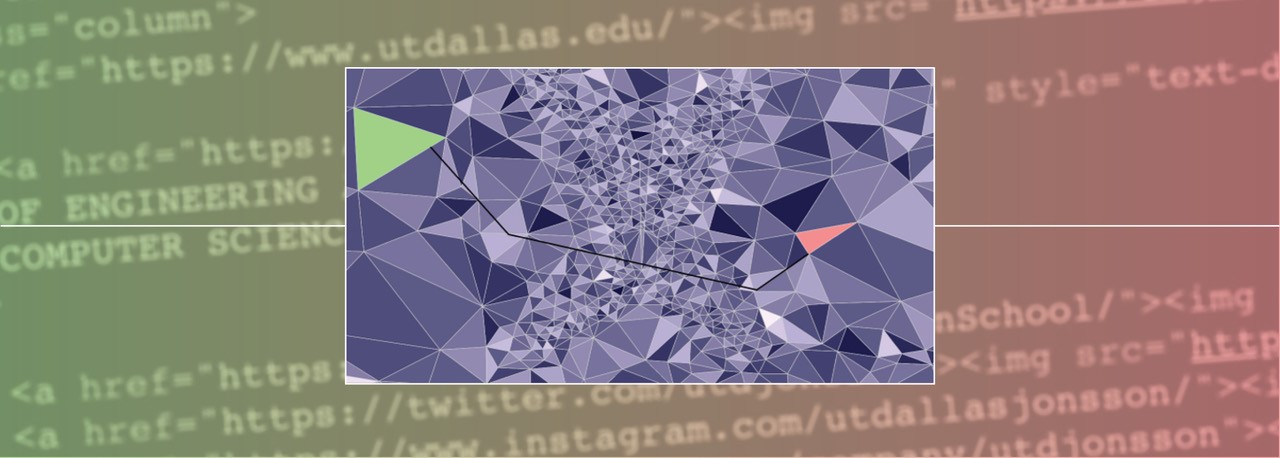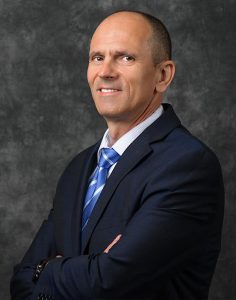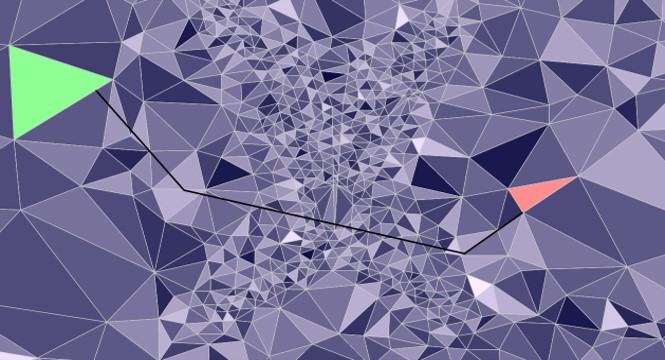
Algorithm Engineer Named Head of Computer Science

Dr. Ovidiu Daescu, a computer scientist whose most recent work involves development of algorithms and computational models that help assess treatment efficacy and predict treatment outcomes in pediatric oncology as well as algorithms for optimization problems in urban environments, is now head of the Department of Computer Science in the Erik Jonsson School of Engineering and Computer Science.
After receiving his PhD in computer science and engineering from the University of Notre Dame, Daescu joined The University of Texas at Dallas as a faculty member in 2000. He became assistant department head in 2009 and interim head in 2021.
“Ovidiu has a wealth of experience, is thoughtful and is committed to fairness and equity,” said Dr. Stephanie G. Adams, dean of the Jonsson School, holder of the Lars Magnus Ericsson Chair and professor of systems engineering. “I am excited about how computer science faculty members rallied around and supported him during the interim, and believe his systems approach to leadership will ensure that our program remains relevant in all aspects.”
Daescu, who grew up in Romania where he earned a bachelor of science in computer science and automation from the Technical Military Academy of Bucharest, said he is proud of his progressively rising career.
“Being a self-grown department head is a tough achievement to accomplish,” he said. “I started at the lowest level with no significant resources other than a strong academic background and the belief that if you work hard and stay focused, you can achieve great things. Then, I did just that with the help of my mentors, my family and friends, my students and colleagues and a supportive leadership throughout my academic experience.”
“Ovidiu has a wealth of experience, is thoughtful and is committed to fairness and equity. I am excited about how computer science faculty members rallied around and supported him during the interim, and believe his systems approach to leadership will ensure that our program remains relevant in all aspects.”
Dr. Stephanie G. Adams
Jonsson School Dean, Lars Magnus Ericsson Chair and Professor of Systems Engineering
Daescu’s expertise in computational geometry allowed applications of his work to stay relevant over time. His original expertise was in optimization algorithms for 2D and 3D environments, such as visibility, shortest paths and proximity problems.
Career Highlights
Editor or co-editor of multiple book chapters and more than 150 conference and journal publications
Director of computer science undergraduate education, which ranks 63rd nationally and 38th among public universities, according to the U.S. News and World Report college rankings
Principal investigator and site director for iPerform, an NSF IUCRC on assistive technologies to improve human performance
Principal investigator on NSF awards and children cancer research subawards through UT Southwestern Medical Center
Keynote speaker, 15th International Conference on Algorithmic Aspects in Information and Management (AAIM) 2021
Keynote speaker, American Society of Pediatric Hematology and Oncology Summer Symposium, Artificial Intelligence Symposia, 2021
Editorial board member, Journal of Experimental Biology and Medicine
General Chair, 8th International Symposium on Bioinformatics Research and Applications, 2012
Co-chair, 4th Annual International Conference on Combinatorial Optimization and Applications, 2010
“My goal has always been to find solutions that either are guaranteed that they cannot be improved algorithmically, or remain the best known for a long time,” Daescu said.
His first published paper, co-authored with his PhD advisor, was an optimal algorithm for maintaining the visibility of a point-like object moving on a straight path in a simple polygonal-like environment. He later focused on algorithms for optimal paths with few turns in environments partitioned into regions of varying travel costs, and facility location-type problems that involve finding closet and farthest neighbors.
Most recently, Daescu is working with physicians at UT Southwestern Medical Center to develop computing models that assess treatment outcomes for osteosarcoma, cancer that starts in the bone, and rhabdomyosarcoma, cancer that usually begins in muscles that are attached to bones and that help the body move in pediatric patients. His assessments are from medical images of various modalities such as digital pathology and MRI and CT scans that make personalized predictions of treatment outcome. Related past work funded by the National Science Foundation (NSF) includes algorithms for optimizing planning for delivery of radiation therapy used to treat cancer patients that consider variables such as tumors and organs at risk for movement when a patient breathes.
Until recently, Daescu has been the UT Dallas site director of iPerform, an Industry/University Cooperative Research Center (IUCRC) sponsored by the NSF that is focused on developing technologies that help improve human performance.
Daescu committed to the study of computer science before he had seen a computer.
“I was very good at math, and physics, and the hardware part of computer science connects to physics and the software part connects to math, so combining these disciplines was perfect for me,” he said.
When he joined UT Dallas as an assistant professor, the University was about 10,945 students; enrollment now is 29,698.
Experience
Education
MS in computer science and automation, Technical Military Academy of Bucharest in Romania; MS and PhD in computer science and engineering, University of Notre Dame in Indiana
Research Areas
Biomedical algorithms, algorithm engineering, computational geometry
Professional Positions
Programming analyst, Technical Military Academy of Bucharest; lecturer, Technical Military Academy of Bucharest; assistant, associate and full professor, computer science, UT Dallas; assistant, associate and interim department head, computer science, UT Dallas
Studying computer science in the Jonsson School is consistently a significant draw for incoming students, with computer science being a top declared major for incoming freshman in recent years. The computer science program awards a large number of bachelor’s degrees, ranking No. 3 in the country, according to the most recent numbers published by the American Society for Engineering Education.

“Being at a growing university was very important to me,” Daescu said. “I stayed because of the amazing transformation of campus propelled by leaders who poured their heart and soul into the University and for the friendly and supportive academic environment.”
In addition to helping build the computer science department through various committee and leadership roles, Daescu’s research expertise helped University expansion of programs in bioinformatics, the creation of the Jonsson School Department of Bioengineering and the creation of the bachelor of science in data science, a joint degree between the Jonsson School and the School of Natural Sciences and Mathematics.
Daescu stated that a key to his effective leadership is keeping an open mind.

“I think it is OK to disagree as long as we respect each other and value others’ opinions,” he said. “Do I think I’m right? Probably, but I also know that I could be wrong. I keep that door open and am willing to listen to reason so I can understand why others may see things differently.
“I believe that people are well intended and want do things right, so I would listen and work with them even when I might disagree.”